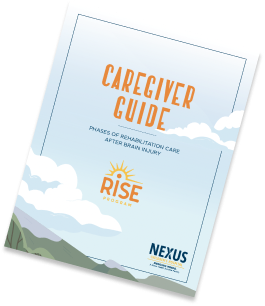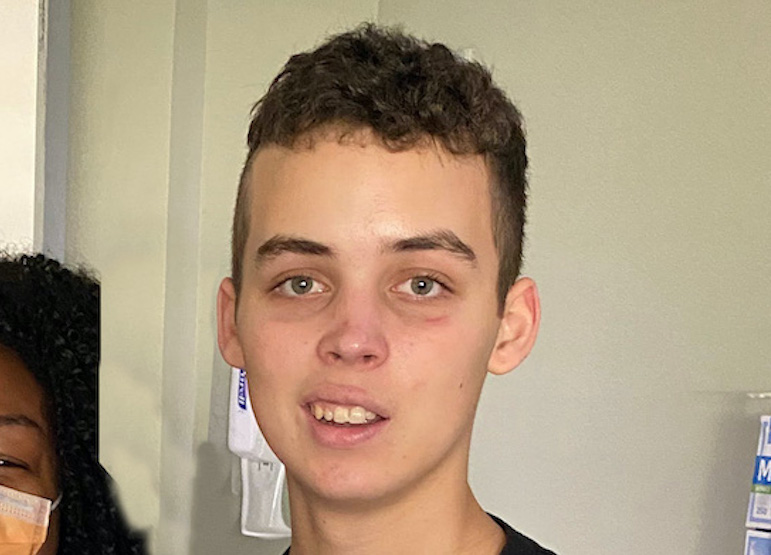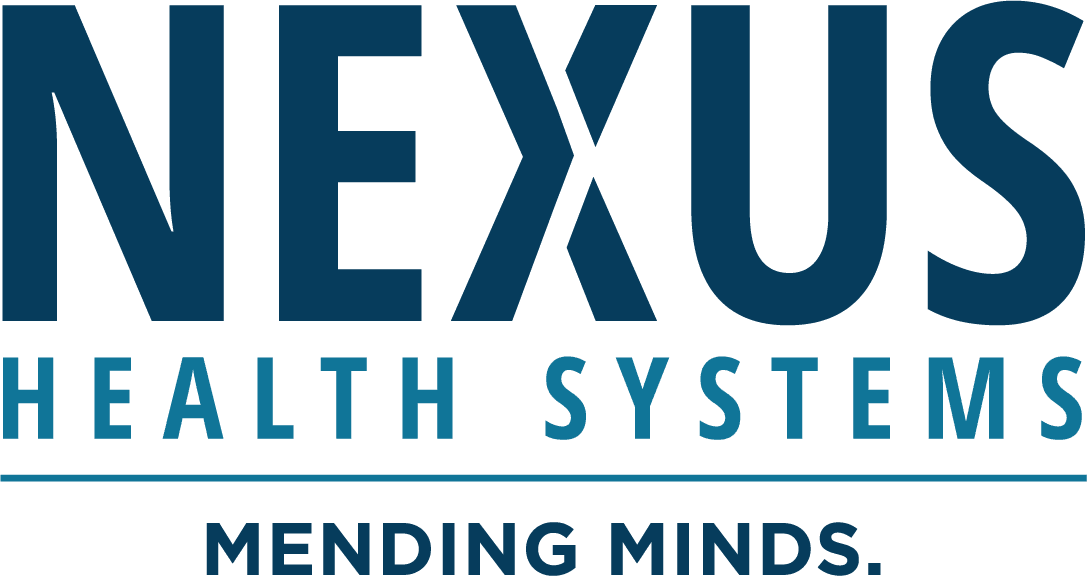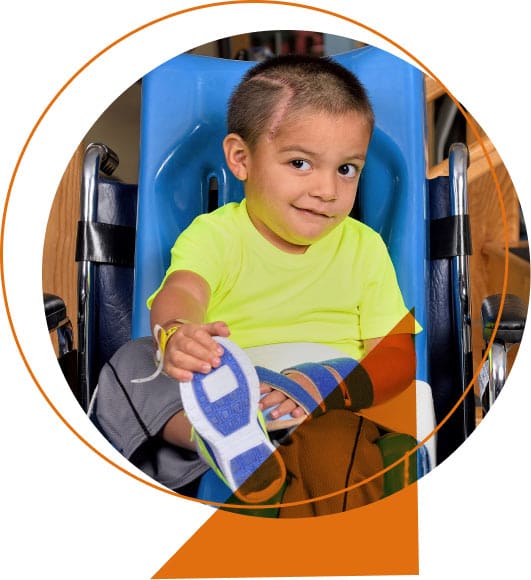
A comprehensive rehabilitation program for patients recovering from severe brain injury, spinal cord injury, and stroke.
Rehabilitation and ongoing medical care after neurological injury or illness.
Led by an interdisciplinary team of doctors and rehabilitation experts, the Rise Program helps patients recovering from severe brain injury, spinal cord injury, stroke, and other neurological conditions transition from intensive care to acute neurorehabilitation and, finally, home. Comprehensive, individualized treatment plans help patients achieve improved function and greater independence — both paramount to fulfillment and overall quality of life. Leveraging 30+ years of neurorehabilitation experience combined with the latest medical advancements, Nexus is committed to mending minds.
An interdisciplinary approach to neurorehabilitation.
An interdisciplinary neurorehabilitation team makes all the difference in you or your loved one’s recovery. Our team of experts includes physical medicine and rehabilitation physicians, primary care physicians, nurses, dietitians, speech-language pathologists, neuropsychologists, and board-certified behavior analysts, as well as physical, occupational, recreational, and respiratory therapists.
What happens at each phase of brain injury recovery?
Click here for an in-depth look.
More on Brain InjuryPhases of brain injury recovery at Nexus.
Patients can admit to any phase of the program, just as they can progress to any level of care as their needs evolve. Treatment plans and goals are adjusted depending on the patient’s level of responsiveness and medical conditions.
- Disorders of consciousness. For patients who continue to show altered arousal and/or limited ability to interact with their environment, and are not yet or inconsistently following commands (Unresponsive Wakefulness Syndrome/Minimally Conscious State).
- Post-traumatic amnesia/delirium. Designed for recovery from acute confusion and/or post-traumatic amnesia (PTA) and beyond. This phase provides orienting information to promote increased environmental awareness and medical and
environmental structure to promote behavioral regulation. - Recovery. Supporting individuals and their families as they navigate the transition from hospital back into their home, school, work, and community environments. Neuropsychological testing is provided to identify cognitive deficits and provide recommendations, for individuals to develop and progress towards independence.
Looking for more tips? Download the Nexus Caregiver Guide!
DOWNLOAD
Rise Program standards of care.
From admission to discharge, our team guides patients through a personalized rehabilitation program. We support patients with the medical and psychological resources they need to make progress and reach their goals, such as returning to home, school, or work.
Program features:
- Manage behavioral agitation, including medication management and environmental behaviors
- Initiate neurostimulation
- Mobilize patients as soon as possible
- Optimize sleep/wake cycle
- DME recommendations and wheelchair clinics
- Caregiver training including modules and independent living trials
- Three-hour daily rehab not required for admission
- Treatment for all levels of brain injury recovery
- Patients involved in CPS investigation accepted

Meet a RISE Program success story.
“As confusing, hard, and unbelievable as it was, Nexus was the only stability my wife and I had. The staff cared and were truly professional in everything they did. Our experience was A+.”
— Mr. Fresca, patient’s father
Common diagnoses of Rise Program patients.
Nexus accepts patients in all phases of brain injury, spinal cord injury, and stroke recovery, including those with disorders of consciousness who may not meet acute rehabilitation criteria.* Additionally, we accept patients with tracheostomies/ventilators, complicated wounds, and medically complex needs (such as neurostorming).
Common diagnoses:
- Traumatic/acquired brain Injury
- Spinal cord Injury
- Disorder of consciousness
- Post-Traumatic amnesia/delirium
- Seizure disorder
- Behavioral dysregulation
- Complex neurological conditions
- Dual diagnoses**
*Although our programs can provide an acute inpatient rehabilitation level of care (15 hours/week), patients do not have to be ready to participate in three hours of daily therapy at the time of their admission to qualify for programming.
**The Rise Program information on this page only applies to the hospital level of care. To learn about our residential neurorehabilitation, visit Nexus Neurorecovery Center – Conroe.
What is neurostorming?
Most people are familiar with the feeling of stress. Your heart may beat faster, your breath could quicken, your blood pressure might rise, and your muscles might tense up. This is called the flight-or-fight response — what our bodies may do in reacting to being chased by a bear, for example. This reaction improves our ability to survive the stress that is causing it. When the brain is injured, it’s difficult for the person to inhibit this response, which causes many challenges.
Read on to learn more about neurostorming and the PSH response, as well as what that means for brain injury recovery and rehabilitation.

